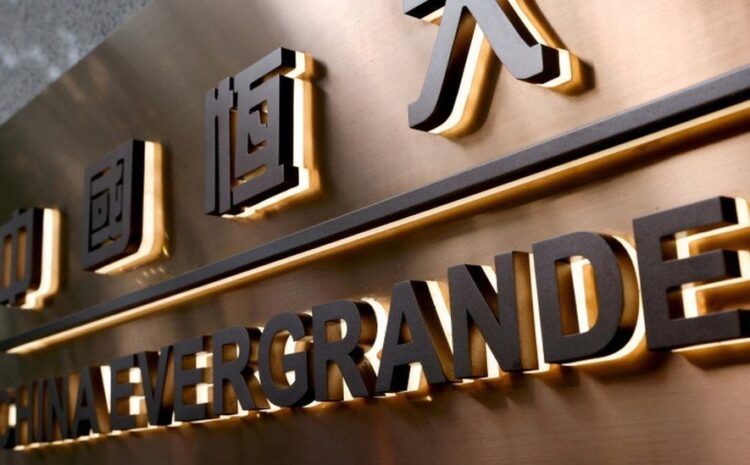
IMAGE SOURCE, REUTERS
The statement to the stock exchange did not give a reason for the trading halt.
Evergrande has more than $300bn (£222bn) of debt and is scrambling to raise cash by selling assets and shares to repay suppliers and creditors.
Last week, the company dialled back plans to repay investors in its wealth management products.
Evergrande said on Friday that each investor in its wealth management product could expect to receive $1,257 each month as principal payment for three months irrespective of when the investment matures.
The company had earlier not mentioned any amount and had agreed to repay 10% of the investment by the end of the month when the product matures.
The announcement was seen as highlighting the deepening cash squeeze at the struggling property developer.
Last week, Evergrande did not make some interest payments on its offshore bonds.
Over the weekend, local media reported that a city government on the Chinese resort island of Hainan had ordered the company on 30 December to demolish its 39 residential buildings there within 10 days, as they were built illegally.
Evergrande has yet to comment on the reports.
The company’s $19bn in international bonds were deemed to be in default by rating agencies after it missed a payment deadline last month.
There were reports at the time that rival real estate firm Hopson Development was set to buy a 51% stake in its property services unit.
However, later that month Evergrande said the $2.6bn (£1.9bn) deal had fallen through as they were unable to agree on the terms of a deal.
Evergrande’s shares lost almost 90% of their value last year as investors became increasingly concerned about its future.


For months, many of the details of Evergrande’s debt crisis have been clouded in uncertainty.
But some experts believe that this is no accident – it is exactly how Beijing wants it to be.
China watchers say the government wanted to send a clear message that what they consider to be the reckless expansion of the sector could not continue.
Authorities have also signalled that they have no intention of bailing out Evergrande, and its billionaire founder, because it would go against President Xi Jinping’s “Common Prosperity” policies, which aim to distribute wealth more fairly throughout society.
However, Beijing is also, understandably, keen to ensure that Evergrande’s troubles do not become China’s Lehman moment, which could affect the rest of the world’s second largest economy and beyond.
So, the slow restructuring of Evergrande continues quietly behind closed doors. And, just like today’s trading halt announcement, no reasons are given.
